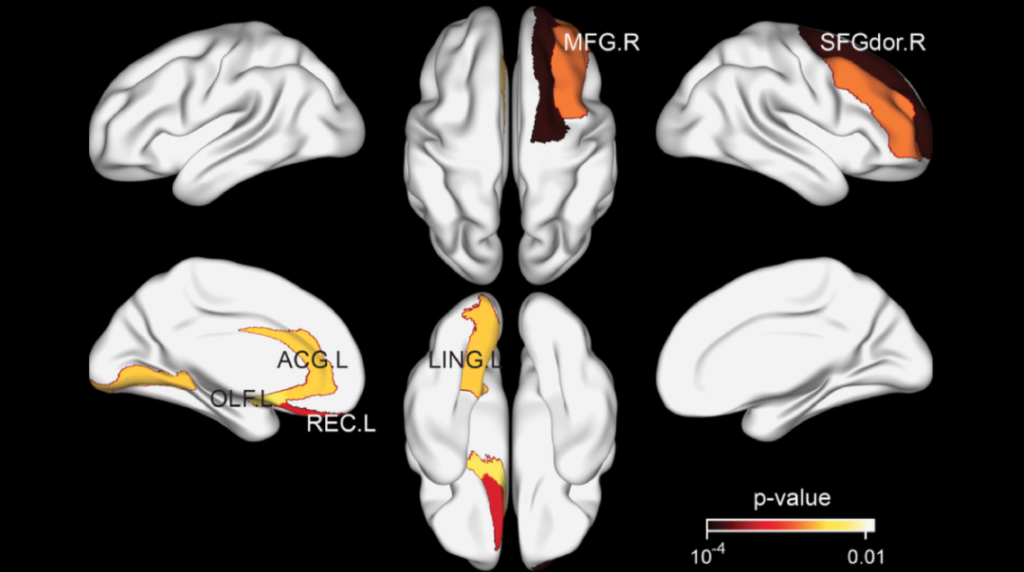In 2019, researchers conducted the first study to explore the effects of habitual tea drinking on system-level brain networks.
After water, tea is the most popular beverage in the world. While many people enjoy tea for the flavor, aroma and caffeine boost, research suggests that there may be another reason to regularly drink this beverage: its effects on the brain. In 2019, researchers from Wuyi University, University of Essex, University of Cambridge, and the National University of Singapore conducted the first study exploring the effects of tea on system-level brain networks. Their paper was published in Aging (Aging-US) Volume 11, Issue 11, and entitled, “Habitual tea drinking modulates brain efficiency: evidence from brain connectivity evaluation.”
“In this study, we comprehensively explored brain connectivity with both global and regional metrics derived from structural and functional imaging to unveil putative differential connectivity organizations between tea drinking group and non-tea drinking group.”
The Study
The subjects enrolled in this study were older adults (mean ≈ 70 years old) from residential communities in Singapore, without conditions or terminal illnesses (see Materials and Methods). Researchers initially recruited 93 participants, however, only 36 total participants (male = 6; female = 30) remained after adjusting for the strict study inclusion criteria. Researchers classified the remaining participants as “non-tea drinkers” or “tea drinkers” using complex composite test scores. The composite score included self-reports of multiple decades of weekly green tea, oolong tea, black tea, and coffee intake (see Materials and Methods). After screening, 15 participants were assigned to the tea-drinking group and 21 were assigned to the non-tea drinking group. (Coffee intake did not differ significantly between the two groups.)
Next, structural brain connectivity was compared between tea drinkers and non-tea drinkers. All 36 participants underwent MRI brain scans and both functional and structural networks were investigated from global and regional perspectives. The researchers found that participants in the tea-drinking group had more efficient structural organization. However, tea did not seem to have a significantly beneficial effect on global functional organization. As a result of tea drinking, hemispheric asymmetry in the structural connectivity network was observed, although it was not observed in the functional connectivity network.
“In addition, functional connectivity strength within the default mode network (DMN) was greater for the tea-drinking group, and coexistence of increasing and decreasing connective strengths was observed in the structural connectivity of the DMN.”
Conclusion
The researchers found that tea drinkers had more efficient brain structure organization than non-tea drinkers. Studies have previously demonstrated that tea drinkers are less likely to develop dementia, and tea consumption has also been linked with better cognitive performance. The researchers note that these effects are due to tea’s contents of caffeine, L-theanine and polyphenols (catechins). Polyphenols are compounds found in plants, including tea leaves, and may help protect against oxidative damage. Previous studies have shown that tea polyphenols can cross the blood-brain barrier and may help improve brain function.
While this study’s findings suggest that habitual tea drinking leads to better brain connectivity and efficiency in old age, the researchers were forthcoming about the limitations of their study. The sample size was limited and other substances, behaviors, habits, and environmental factors may have impacted the outcome of the study.
“Our study offers the first evidence of the positive contribution of tea drinking to brain structure and suggests a protective effect on age-related decline in brain organisation.”
Click here to read the full research paper published by Aging (Aging-US).
AGING (AGING-US) VIDEOS: YouTube | LabTube | Aging-US.com
—
Aging (Aging-US) is an open-access journal that publishes research papers monthly in all fields of aging research and other topics. These papers are available to read at no cost to readers on Aging-us.com. Open-access journals offer information that has the potential to benefit our societies from the inside out and may be shared with friends, neighbors, colleagues, and other researchers, far and wide.
For media inquiries, please contact [email protected].

